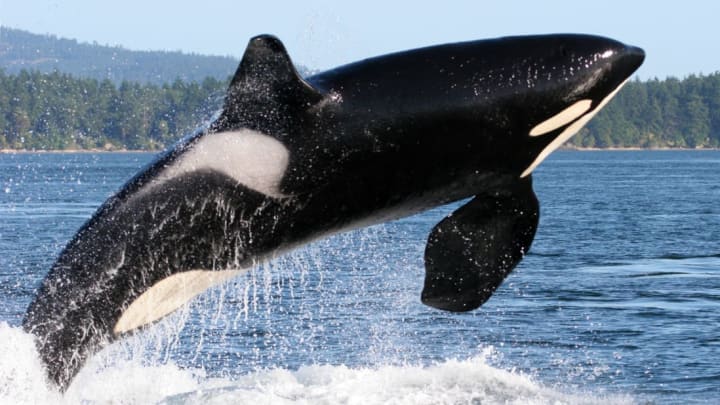Great white sharks were stereotyped as malevolent carnivores in films like 1975’s Jaws, but it’s possible that killer whales might be the apex predators with a grudge against humans. According to The Guardian, killer whales—the largest member of the dolphin family—have been ramming into boats off the Spanish coast in what some observers believe are deliberate attacks.
Reports of orcas confronting boats have been coming in from sailors across southern Spain for the past two months. In some cases, the damage has been significant, with boats losing parts of their rudders. Some crew members have been wounded from the jolts.
These do not appear to be accidental encounters. In one incident last Friday afternoon near A Coruña, a port city in northwestern Spain, a yacht was pummeled by an orca about 15 times. The damaged vessel had to be towed into port.
Other attacks have seen groups of orcas, known as pods, team up to smash boats. Near Cape Trafalgar, nine orcas spent more than an hour crashing into a boat, and eventually disabled the engine. The skipper said the whales had been communicating by whistling during the encounter.
Scientists aren't entirely sure what’s causing this aggressive behavior, though it’s possible that just one pod is responsible for all of the attacks. One explanation could be stress due to scarce resources in the area, as humans fish the tuna the whales thrive on; another is that eyewitness reports are not from trained researchers, ascribing behavior that might not match the intention of the orcas, who have been known to interact with boats and their rudders with curiosity.
One theory is even related to the current coronavirus pandemic: As fewer vessels left port during lockdowns, the whales may have grown accustomed to quieter waters. As activity picked up, they responded to the increased commotion and disruption by attacking.
But could they really be expressing anger? For some scientists, the answer is yes. Decades of fishing nets and ship noise in their territory, plus a dwindling food supply, means that orcas could be identifying boats and their human occupants as stress factors. And they might be starting to respond in kind.
[h/t The Guardian]
